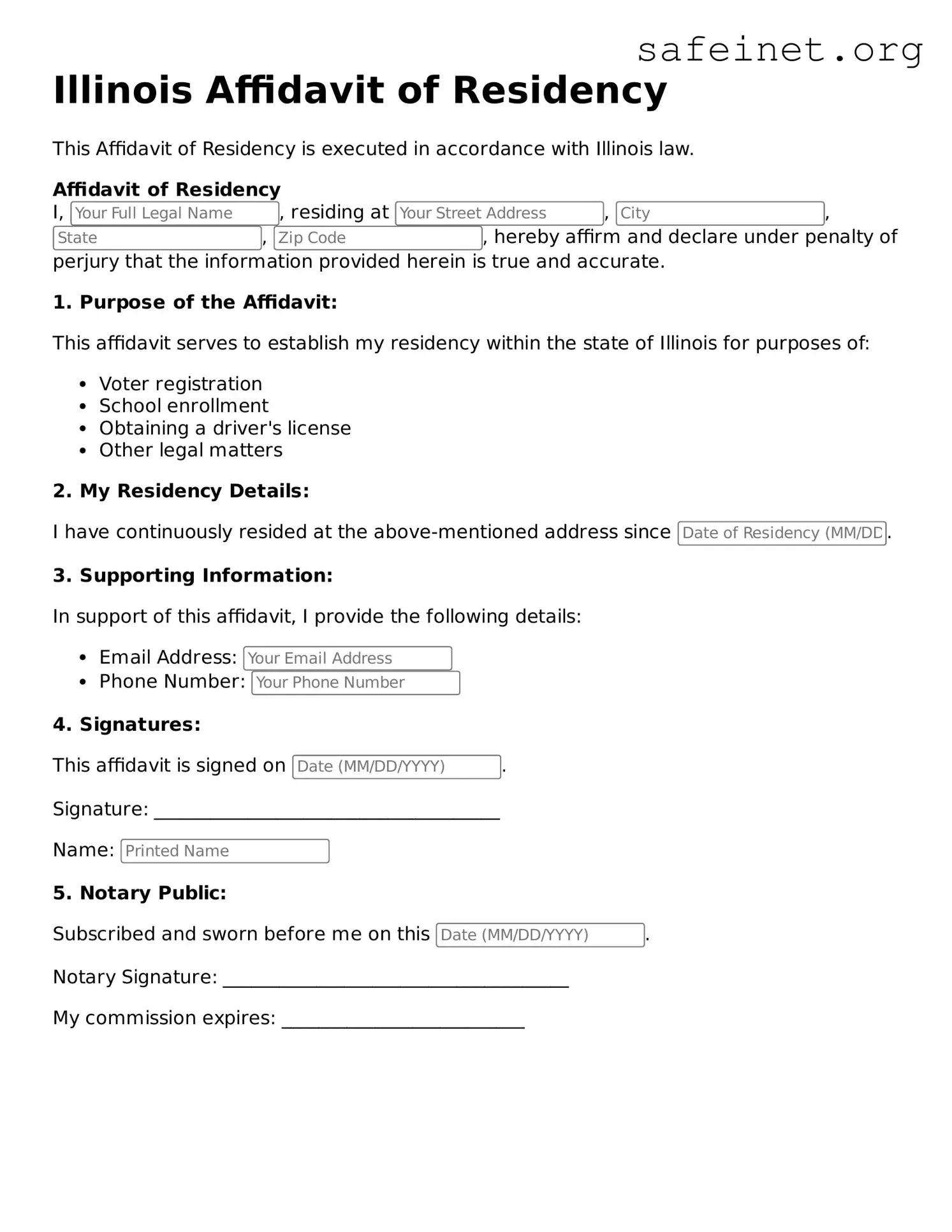What is the Illinois Affidavit of Residency form?
The Illinois Affidavit of Residency is a legal document that verifies where a person lives. It is often used for various legal purposes, including proving residency for school enrollment, obtaining a driver's license, or other state services that require proof of where you live.
Who needs to complete the Affidavit of Residency?
This form is typically required by individuals who need to prove their residency in Illinois. It may be needed by students enrolling in schools, adults applying for state benefits, or anyone else whose residency status is questioned.
What information is included in the Affidavit of Residency?
The form generally asks for basic personal information. This includes your name, current address, and some details about how long you have lived at that address. You may also need to include any other supporting information or documentation that can confirm your residency.
How do I obtain the Affidavit of Residency form?
You can usually find the Illinois Affidavit of Residency form online through the Illinois government website or your local county offices. You may also be able to get a copy at schools, local government agencies, or through legal aid organizations.
Is there a fee to submit the Affidavit of Residency?
Generally, there is no fee associated with completing and submitting the Affidavit of Residency form. However, it is important to check with the specific agency or institution requesting the affidavit, as they may have their own rules and requirements.
Do I need to have the Affidavit of Residency notarized?
In many cases, yes. Notarization adds a layer of validation to the document. You should check the requirements where you plan to submit the affidavit. Some institutions may require the form to be notarized, while others may not.
What happens if I provide false information on the Affidavit of Residency?
Providing false information on the affidavit can lead to serious consequences. This may include legal penalties, denial of services, or even criminal charges, depending on the severity of the misrepresentation. It is always important to provide accurate and truthful information.
